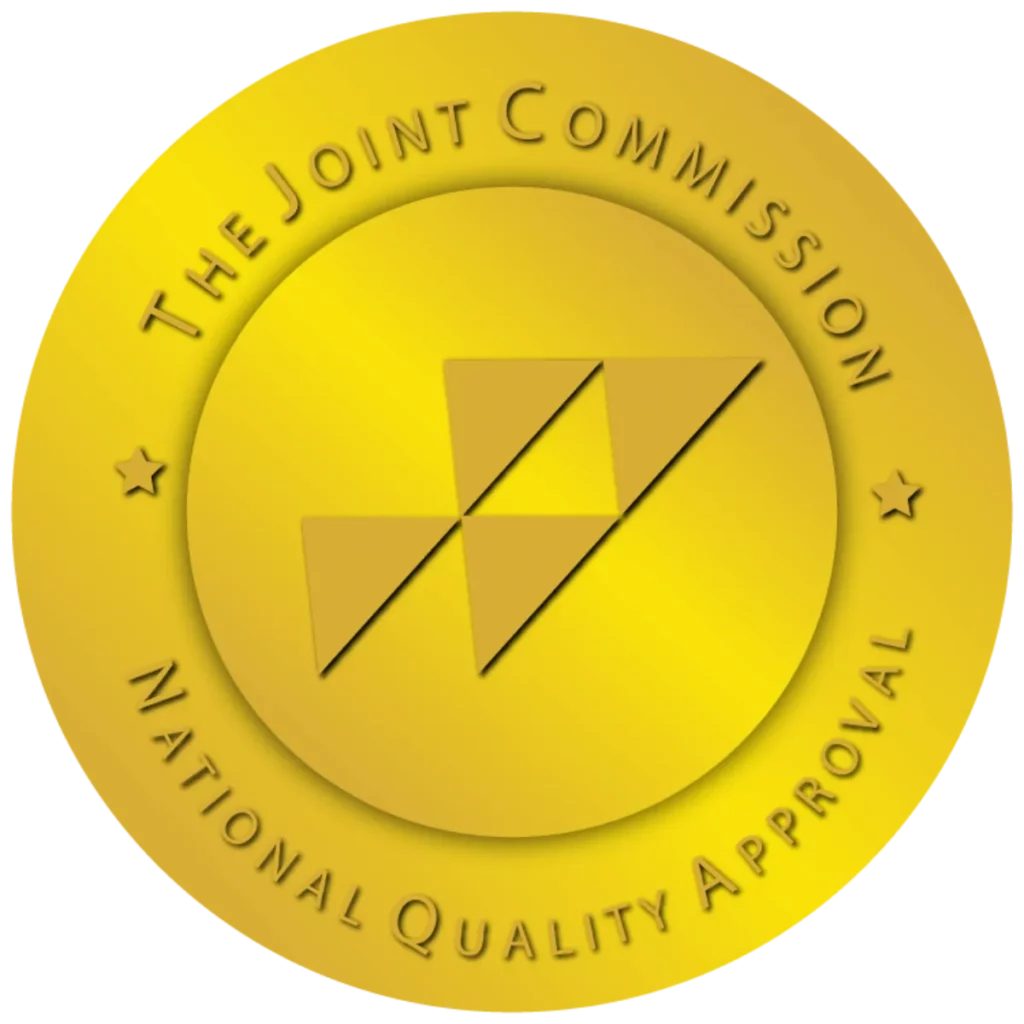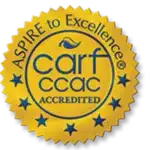INSURANCE
VERIFICATION
At Asana Recovery, we work closely with a wide range of major insurance providers, striving to alleviate the financial burden on our clients. Our dedicated team is well-versed in navigating insurance policies and will assist you in maximizing your benefits. Rest assured, we aim to make quality addiction treatment accessible to as many individuals as possible.

For those seeking confidentiality or without insurance coverage, we also offer private pay options. Our team recognizes the diverse needs of our clients, and we are committed to tailoring solutions that suit your unique circumstances. Asana Recovery is here to support you every step of the way – from insurance verification to personalized payment plans, ensuring your focus remains on the path to recovery.
Call us and get help today.
FAQ Insurance and Payment
Studies have shown that the longer clients stay in treatment, the greater their chances of success. According to Dr. Akikur Mohammad, of the University of Southern California, “Aftercare is crucial once an individual has completed drug or alcohol rehab and is in recovery. There is a continuity of care that should be followed once initial treatment is completed.
Our study shows that the absence of such treatment after 30 days significantly reduces the chances of the patient maintaining their sobriety.
One of the appealing things about an outpatient drug and alcohol addiction treatment program is that it does not require the client to live in a residential treatment center.
While this is not the recommended approach for people who have not yet been through rehab, it can be very beneficial for clients transitioning from inpatient treatment or for those who are simply not willing or able to go to inpatient treatment.
With outpatient treatment, work and home situations and schedules are less disrupted by the treatment plan.
Typically, a client in an outpatient program will need to attend day and/or evening sessions throughout the week for individual, group counseling and therapy, as well as attending off-site support groups. Flexibility can be the key to a successful outpatient recovery experience.
Asana Recovery’s outpatient treatment programs in Orange County California offer drug and alcohol rehab sessions that can be scheduled at various times during the week, providing some flexibility to clients who may have significant obligations outside of treatment.
This schedule allows clients to continue with their regular responsibilities and continue living at home or at a sober living facility, though they are required to attend rehab sessions at their appointed times for counseling, and medication therapy, as applicable.
The trained admissions counselors at our Orange County Treatment Center can help you determine what treatment plan will provide you with the best chance for long term success.
Outpatient programs come in a variety of formats and differing levels of intensity depending on your individual needs and where you are in your recovery journey.
Outpatient treatment programs like Asana Recovery’s offer an array of services with a general focus on counselling, addiction education and providing a foundation of support for continued success in recovery.
Asana Recovery provides three different outpatient programs, Partial Hospitalization Program (PHP), Intensive Outpatient Program (IOP), and the traditional Outpatient Program (OP). The trained counselors at Asana Recovery can assist you in determining if one of these programs makes sense for you.
When choosing an outpatient treatment facility, it is important to evaluate the program’s goals in relation to the client.
First, the facility’s programs should be structured in a way that steps you slowly back into the outside community. Beware of programs that seek to maintain a long-term presence in your life. The program should be moving you toward independence rather than maintaining your dependence on their support. Asana Recovery is committed to reintegrating every client back into their lives in a way that is healthy, independent, and sustainable.
Second, the program should offer a variety of treatment options so that each client can find the therapy that works best for them. Asana Recovery offers traditional individual and group therapy, but also provides non-traditional therapies such as massage therapy and massage therapy, motion therapy and art therapy. The ability to explore these different types of therapies allows the client to discover new activities that can provide the mental strength to maintain a long-term sober lifestyle.
Third, an outpatient treatment program should focus on providing the client with skills that can translate into personal fulfillment once they have integrated back into the outside community. Asana Recovery offers education, skills training and the ability to discover and pursue a passion as a volunteer. These opportunities allow the client to leave treatment with both a sense of purpose and an identity that is not tied to substance abuse.
These three criteria all meld together in a program that is well-positioned to set up each and every outpatient client for success in their recovery journey. If these sound like opportunities that appeal to you, contact our trained counselors today to discuss how you can be a part of our outpatient treatment program.
Studies have shown that the longer clients stay in treatment, the greater their chances of success. According to Dr. Akikur Mohammad, of the University of Southern California, “Aftercare is crucial once an individual has completed drug or alcohol rehab and is in recovery. There is a continuity of care that should be followed once initial treatment is completed.
Our study shows that the absence of such treatment after 30 days significantly reduces the chances of the patient maintaining their sobriety.
One of the appealing things about an outpatient drug and alcohol addiction treatment program is that it does not require the client to live in a residential treatment center.
While this is not the recommended approach for people who have not yet been through rehab, it can be very beneficial for clients transitioning from inpatient treatment or for those who are simply not willing or able to go to inpatient treatment.
With outpatient treatment, work and home situations and schedules are less disrupted by the treatment plan.
Typically, a client in an outpatient program will need to attend day and/or evening sessions throughout the week for individual, group counseling and therapy, as well as attending off-site support groups. Flexibility can be the key to a successful outpatient recovery experience.
Asana Recovery’s outpatient treatment programs in Orange County California offer drug and alcohol rehab sessions that can be scheduled at various times during the week, providing some flexibility to clients who may have significant obligations outside of treatment.
This schedule allows clients to continue with their regular responsibilities and continue living at home or at a sober living facility, though they are required to attend rehab sessions at their appointed times for counseling, and medication therapy, as applicable.
The trained admissions counselors at our Orange County Treatment Center can help you determine what treatment plan will provide you with the best chance for long term success.
Outpatient programs come in a variety of formats and differing levels of intensity depending on your individual needs and where you are in your recovery journey.
Outpatient treatment programs like Asana Recovery’s offer an array of services with a general focus on counselling, addiction education and providing a foundation of support for continued success in recovery.
Asana Recovery provides three different outpatient programs, Partial Hospitalization Program (PHP), Intensive Outpatient Program (IOP), and the traditional Outpatient Program (OP). The trained counselors at Asana Recovery can assist you in determining if one of these programs makes sense for you.
When choosing an outpatient treatment facility, it is important to evaluate the program’s goals in relation to the client.
First, the facility’s programs should be structured in a way that steps you slowly back into the outside community. Beware of programs that seek to maintain a long-term presence in your life. The program should be moving you toward independence rather than maintaining your dependence on their support. Asana Recovery is committed to reintegrating every client back into their lives in a way that is healthy, independent, and sustainable.
Second, the program should offer a variety of treatment options so that each client can find the therapy that works best for them. Asana Recovery offers traditional individual and group therapy, but also provides non-traditional therapies such as massage therapy and massage therapy, motion therapy and art therapy. The ability to explore these different types of therapies allows the client to discover new activities that can provide the mental strength to maintain a long-term sober lifestyle.
Third, an outpatient treatment program should focus on providing the client with skills that can translate into personal fulfillment once they have integrated back into the outside community. Asana Recovery offers education, skills training and the ability to discover and pursue a passion as a volunteer. These opportunities allow the client to leave treatment with both a sense of purpose and an identity that is not tied to substance abuse.
These three criteria all meld together in a program that is well-positioned to set up each and every outpatient client for success in their recovery journey. If these sound like opportunities that appeal to you, contact our trained counselors today to discuss how you can be a part of our outpatient treatment program.
SPEAK TO AN ADDICTION SPECIALIST
We are committed to providing a comfortable and effective place for clients to get clean and begin their journey in recovery. Your recovery is our number ONE priority at Asana Recovery. Call us today.
Saving lives. Supporting families. Strengthening communities.



Resources
Programs
State Licenses
- 300043AP | exp. 08/31/2024
- 300043BP | exp. 02/28/2026
- 300043CP | exp. 11/30/2024
- 300043DP | exp. 04/30/2025
- 300043EP | exp. 06/30/2024
Accessibility
Accessibility modes
Online Dictionary
Readable Experience
Visually Pleasing Experience
Easy Orientation
Asana Recovery
Accessibility Statement
- asanarecovery.com
- May 1, 2024
Compliance status
We firmly believe that the internet should be available and accessible to anyone, and are committed to providing a website that is accessible to the widest possible audience, regardless of circumstance and ability.
To fulfill this, we aim to adhere as strictly as possible to the World Wide Web Consortium’s (W3C) Web Content Accessibility Guidelines 2.1 (WCAG 2.1) at the AA level. These guidelines explain how to make web content accessible to people with a wide array of disabilities. Complying with those guidelines helps us ensure that the website is accessible to all people: blind people, people with motor impairments, visual impairment, cognitive disabilities, and more.
This website utilizes various technologies that are meant to make it as accessible as possible at all times. We utilize an accessibility interface that allows persons with specific disabilities to adjust the website’s UI (user interface) and design it to their personal needs.
Additionally, the website utilizes an AI-based application that runs in the background and optimizes its accessibility level constantly. This application remediates the website’s HTML, adapts Its functionality and behavior for screen-readers used by the blind users, and for keyboard functions used by individuals with motor impairments.
If you’ve found a malfunction or have ideas for improvement, we’ll be happy to hear from you. You can reach out to the website’s operators by using the following email
Screen-reader and keyboard navigation
Our website implements the ARIA attributes (Accessible Rich Internet Applications) technique, alongside various different behavioral changes, to ensure blind users visiting with screen-readers are able to read, comprehend, and enjoy the website’s functions. As soon as a user with a screen-reader enters your site, they immediately receive a prompt to enter the Screen-Reader Profile so they can browse and operate your site effectively. Here’s how our website covers some of the most important screen-reader requirements, alongside console screenshots of code examples:
-
Screen-reader optimization: we run a background process that learns the website’s components from top to bottom, to ensure ongoing compliance even when updating the website. In this process, we provide screen-readers with meaningful data using the ARIA set of attributes. For example, we provide accurate form labels; descriptions for actionable icons (social media icons, search icons, cart icons, etc.); validation guidance for form inputs; element roles such as buttons, menus, modal dialogues (popups), and others. Additionally, the background process scans all of the website’s images and provides an accurate and meaningful image-object-recognition-based description as an ALT (alternate text) tag for images that are not described. It will also extract texts that are embedded within the image, using an OCR (optical character recognition) technology. To turn on screen-reader adjustments at any time, users need only to press the Alt+1 keyboard combination. Screen-reader users also get automatic announcements to turn the Screen-reader mode on as soon as they enter the website.
These adjustments are compatible with all popular screen readers, including JAWS and NVDA.
-
Keyboard navigation optimization: The background process also adjusts the website’s HTML, and adds various behaviors using JavaScript code to make the website operable by the keyboard. This includes the ability to navigate the website using the Tab and Shift+Tab keys, operate dropdowns with the arrow keys, close them with Esc, trigger buttons and links using the Enter key, navigate between radio and checkbox elements using the arrow keys, and fill them in with the Spacebar or Enter key.Additionally, keyboard users will find quick-navigation and content-skip menus, available at any time by clicking Alt+1, or as the first elements of the site while navigating with the keyboard. The background process also handles triggered popups by moving the keyboard focus towards them as soon as they appear, and not allow the focus drift outside of it.
Users can also use shortcuts such as “M” (menus), “H” (headings), “F” (forms), “B” (buttons), and “G” (graphics) to jump to specific elements.
Disability profiles supported in our website
- Epilepsy Safe Mode: this profile enables people with epilepsy to use the website safely by eliminating the risk of seizures that result from flashing or blinking animations and risky color combinations.
- Visually Impaired Mode: this mode adjusts the website for the convenience of users with visual impairments such as Degrading Eyesight, Tunnel Vision, Cataract, Glaucoma, and others.
- Cognitive Disability Mode: this mode provides different assistive options to help users with cognitive impairments such as Dyslexia, Autism, CVA, and others, to focus on the essential elements of the website more easily.
- ADHD Friendly Mode: this mode helps users with ADHD and Neurodevelopmental disorders to read, browse, and focus on the main website elements more easily while significantly reducing distractions.
- Blindness Mode: this mode configures the website to be compatible with screen-readers such as JAWS, NVDA, VoiceOver, and TalkBack. A screen-reader is software for blind users that is installed on a computer and smartphone, and websites must be compatible with it.
- Keyboard Navigation Profile (Motor-Impaired): this profile enables motor-impaired persons to operate the website using the keyboard Tab, Shift+Tab, and the Enter keys. Users can also use shortcuts such as “M” (menus), “H” (headings), “F” (forms), “B” (buttons), and “G” (graphics) to jump to specific elements.
Additional UI, design, and readability adjustments
- Font adjustments – users, can increase and decrease its size, change its family (type), adjust the spacing, alignment, line height, and more.
- Color adjustments – users can select various color contrast profiles such as light, dark, inverted, and monochrome. Additionally, users can swap color schemes of titles, texts, and backgrounds, with over 7 different coloring options.
- Animations – epileptic users can stop all running animations with the click of a button. Animations controlled by the interface include videos, GIFs, and CSS flashing transitions.
- Content highlighting – users can choose to emphasize important elements such as links and titles. They can also choose to highlight focused or hovered elements only.
- Audio muting – users with hearing devices may experience headaches or other issues due to automatic audio playing. This option lets users mute the entire website instantly.
- Cognitive disorders – we utilize a search engine that is linked to Wikipedia and Wiktionary, allowing people with cognitive disorders to decipher meanings of phrases, initials, slang, and others.
- Additional functions – we provide users the option to change cursor color and size, use a printing mode, enable a virtual keyboard, and many other functions.
Browser and assistive technology compatibility
We aim to support the widest array of browsers and assistive technologies as possible, so our users can choose the best fitting tools for them, with as few limitations as possible. Therefore, we have worked very hard to be able to support all major systems that comprise over 95% of the user market share including Google Chrome, Mozilla Firefox, Apple Safari, Opera and Microsoft Edge, JAWS and NVDA (screen readers), both for Windows and for MAC users.
Notes, comments, and feedback
Despite our very best efforts to allow anybody to adjust the website to their needs, there may still be pages or sections that are not fully accessible, are in the process of becoming accessible, or are lacking an adequate technological solution to make them accessible. Still, we are continually improving our accessibility, adding, updating and improving its options and features, and developing and adopting new technologies. All this is meant to reach the optimal level of accessibility, following technological advancements. For any assistance, please reach out to












